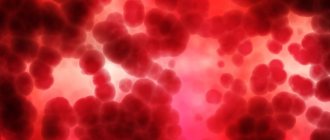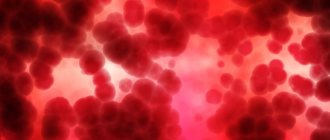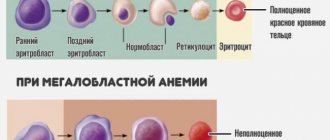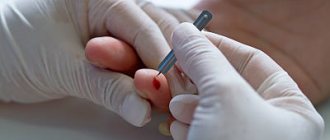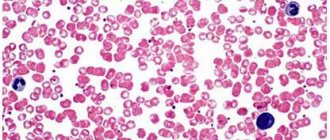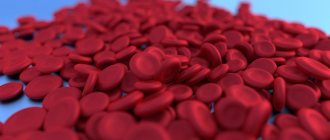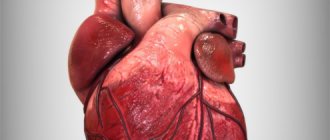How does donation affect the health of the donor?
“Maximum benefit to the patient - no harm to the donor” - this principle is strictly observed by the Blood Service employees.
Donation does not harm the body if the person is healthy. Procuring blood from a donor is permissible only on the condition that his health will not be harmed. In this case, the volume of one donation should not exceed 12% of the circulating blood volume, which normally amounts to 6.5-7% of body weight. The standard volume of blood collection (donation) of 450 ± 50 ml, excluding the amount of blood taken for tests (up to 40 ml), for persons weighing at least 55 kg, ensures the safety of the health of the blood donor.
Each blood loss in a standard volume causes a number of changes in the donor’s body: the hemoglobin level decreases (within 5 days after donation by 2-10% compared to the initial value), the number of red blood cells decreases (from the first hours after blood collection and over the next 5 days ).
Complete restoration of blood composition occurs within 40-50 days. The rate of recovery of different blood components (plasma and blood cells) is different. Red blood cells are restored in the donor's body within 4-6 weeks, and leukocytes and platelets - by the end of the first week, plasma composition - within 1-2 days, hemoglobin level - within a month. It has been proven that in people who have given blood multiple times, the restoration of peripheral blood parameters occurs faster than in primary (donating for the first time) donors. This is explained by the “training” of the hematopoietic organs through repeated bloodletting.
To restore your blood composition faster, it is recommended to drink more fluids - juices, tea. The donor's diet should always contain protein, which determines the level of hemoglobin in the blood (foods containing protein: meat, beets, buckwheat, lentils, beans and all legumes, fish, etc.).
The reaction to blood collection varies from person to person. It depends on many factors: psycho-emotional state, physical activity, nutrition, living conditions of donors, weather conditions.
The loss of a standard blood volume is accompanied by changes that have a dual origin. Immediately after giving blood or in the next few hours, a so-called stress reaction develops to the situation and the blood collection procedure, depending on the type of nervous system and hormonal characteristics of the donor, and a reaction to the loss of cells and substances contained in the blood. Immediately after taking blood from donors, changes in some hemodynamic parameters are observed: a decrease in venous and blood pressure, acceleration of blood flow, and a slight increase in heart rate. The reaction to blood loss is short-lived; normalization of cardiovascular activity occurs within 30-60 minutes. During this period, donors are advised to rest.
After donation, some donors may experience a slight decrease in muscle strength, as well as an increase in the percentage of errors when solving test mathematical and logical problems. This indicates changes in the regulatory mechanisms of the nervous system, which affects work activity. In this regard, donors whose work is associated with great emotional stress and requires quick and accurate reactions (for example: transport drivers, crane operators, high-altitude workers, etc.) are not recommended to start it immediately after donating blood.
For any healthy adult, the process of donating blood is safe and does not harm the body. Repeated blood draws have a beneficial effect on the central nervous system, and through it on the metabolic processes of the entire body. According to a study by Finnish scientists, men who donate blood are ten times less susceptible to myocardial infarction and coronary heart disease; data from American researchers confirm that male donors suffer 30% less from cardiovascular diseases; Regular blood donation maintains cholesterol levels at the proper level, which, in turn, ensures prevention (prevention of the development) of atherosclerosis.
Those who donate blood regularly have a better chance of surviving extreme situations such as road accidents, burns, and major surgeries. The body of a donor who regularly donates blood and its components quickly activates the hematopoietic system during blood loss, which contributes to a speedy recovery. In addition, donors’ blood is renewed more often, “old” blood cells are eliminated, and donors, according to the World Health Organization (WHO), live on average 5 years longer than those who do not donate blood.
Donation of blood and its components is useful for the prevention of diseases of the gastrointestinal tract (stomach, intestines, pancreas, liver), metabolism and diseases of the immune system, which is associated with the renewal of the body and activation of the immune defense.
Deputy Chief Physician A.I. Verigo
06/09/2016
April 20 is National Donor Day. Being a donor means benefiting not only others, but also yourself. Regular blood donation prevents many diseases; donation also helps to prolong youth, avoid strokes and make new acquaintances.
We talked with the chief physician of the Blood Transfusion Station of the Moscow Department of Health, Olga Andreevna Mayorova, about the benefits of donation, who should not donate blood, and how to become a donor .
Maya Milich, AiF.ru: - April 20 is National Donor Day. What set of events are planned to be held in Moscow in connection with this date?
Olga Mayorova: — In connection with this date, we are holding a round table dedicated to National Donor Day, attracting students from secondary specialized educational institutions. We need to educate donors from a very early age, so our guests will be young people. In addition, the transition of our service to work seven days a week was timed to coincide with National Donor Day. The blood transfusion station is now open 7 days a week, excluding only public holidays. We consider this our achievement, because we are the first blood transfusion station in Russia that completely adapts to the interests of donors and operates seven days a week.
In preparation for National Donor Day, we also host large outreach events with the participation of various institutes and universities. After the holiday, we plan to hold outreach events with student youth.
— How is donation popularized today?
“I would like to believe that the active propaganda measures that we are carrying out with targeted categories will lead to results and the influx of donors will increase. As practice has shown, simply hanging large posters on the street has little power. Now we work with targeted categories, with executive authorities, with school teachers, with educational institutions, and not only medical ones, with bikers who actively come and donate blood. We are trying to carry out our work more targeted and targeted in order to attract entire communities of people.
Contraindications
— What diseases prevent people from becoming blood donors?
— People from 18 years of age to any age can donate blood if there are no contraindications in the form of serious illnesses, somatic diseases, hepatitis, infectious diseases, or vegetative-vascular dystonia. Temporary contraindications are allergic diseases in the acute stage, pregnancy, menstruation, and taking antibiotics.
Sometimes the peculiarity of the structure of the veins can become an obstacle, because donation means donating blood in a fairly large volume and the veins must be pronounced. If there are no these contraindications, then a person can be a donor even at 70 years old. We even have several donors who have crossed the 70-year mark, mostly career plasma donors who have been donating for a very long time. Partly due to their active donor position, they maintain health and vitality.
Avoid stroke
— Tell us about the benefits of donation for humans.
— The benefits of donation are undeniable. In human donors, the incidence of cardiovascular diseases, in particular strokes, is significantly reduced, because the blood is actively renewed. Our regular donors of both blood and plasma, especially men, are better protected from vascular accidents.
In addition, any donation is, although mild, stress for the body. And it has been proven that the presence of just such mild stress increases a person’s resistance to the effects of adverse environmental factors.
Thanks to donation, blood cells are regularly renewed, because they too tend to age. Usually their natural restoration occurs, and in donors this process occurs with greater frequency. There is a theory that the female body is more resistant to negative external factors precisely because monthly blood loss occurs.
Donation is very useful in the presence of a genetic disease - hemochromatosis, associated with the accumulation of iron, the excretion of which is impaired. In the United States, half of blood donors are people with this hereditary disease. For them, one of the physiological ways of treatment is bloodletting, which makes them physically feel better.
Another category is people with high levels of cholesterol and fats in plasma. Everyone knows that in this case plasmapheresis is used for treatment and prevention. In commercial clinics, this procedure is quite expensive. But not everyone knows that donor plasmapheresis is almost the same procedure.
People who have crossed 50 and 60 years of age are very active in donating plasma simply because they feel good afterwards. Donation allows you to prolong youth and lead an active lifestyle.
Don't forget about the psychological factor. Donation is a confirmation of one’s own importance; people experience great moral satisfaction. These are lives saved.
In addition, donors are a certain club, especially plasma donors, who come on the same days, at the same time. Acquaintances are made, which is important given the shortage of direct communication today due to the rise of social networks.
By the way, if your loved one or just a new acquaintance of the opposite sex you like is a personnel donor, then anything is possible with him, because he is obviously healthy. After all, being a donor with a frequency of 2 weeks, a person receives testing for the most complex and severe diseases.
How to become a blood donor?
— How to properly prepare for donation and recover after donation?
— First, you need to understand for yourself that being a donor is very important, and that there is never too much donor blood. In my opinion, every healthy person should be a donor. After all, it is not necessary to donate blood monthly, at least 2 times a year.
First you need to choose a time that is convenient for you. Because you need to come to donate blood or its components in a good mood, thanks to this there are significantly fewer complications. And when the donor constantly looks at his watch and realizes that in 30 minutes he needs to be on the other side of Moscow, then, of course, the whole procedure will take place in a nervous state.
For 2-3 days, you need to exclude fatty foods, coloring foods from your diet, stop smoking and drinking any type of alcohol. All these factors during testing can change the normal parameters of the biochemical analysis and such blood will simply be rejected.
The night before, get a good night's sleep. On the day of blood donation in the morning - a light breakfast, sweet tea and a sandwich with low-fat cheese. It is better to avoid coffee; it leads to increased vascular tone.
You can visit the nearest blood donation point, it could be a blood transfusion station, it could be a department. In Moscow today there are more than 30 points where you can donate blood.
It is also very important to take your passport with you, without which donor registration is impossible. If a person is not a resident of Moscow, then it is advisable to have confirmation of registration, although today this is not mandatory. Then simply follow all the instructions that you receive.
After donation, you will receive either a food package or compensation for food. Already from the second time, that is, when the person is no longer the primary donor, you can take advantage of social support measures.
At least six months after the first blood donation, you must come back for a second examination. The plasma is quarantined for 6 months and before it is released into the medical network, it is necessary to re-examine the donor to exclude the possibility of infection if the donor had an incubation period, for example, hepatitis.
https://www.aif.ru/health/life/1152959
How can I help if I have had coronavirus?
Donor blood is used in the treatment of cancer patients, complex operations, injuries and obstetrics. But now there is an additional need for donor plasma. She is asked to donate to those who have already had coronavirus; the antibodies will be used to treat infected patients. Such donors in Moscow will be rewarded with special payments.
According to the Moscow government, there are now about 1,500 people in the capital who have already been cured and can help other patients with COVID-19. Plasma from one donor is enough for one to three patients.
Basic requirements for potential donors: age from 18 to 55 years, absence of chronic diseases, negative tests for HIV, hepatitis B and C. You can find out more about the conditions by calling the hotline (daily from 9 a.m. to 7 p.m.).
Pregnancy and breastfeeding
After pregnancy, the period of abstinence from blood donation should be as many months as the pregnancy lasted.
It is not recommended to donate blood while breastfeeding. After birth, the period of abstinence from blood donation is at least 9 months (according to the length of pregnancy) and lasts 3 months, during which the baby is largely weaned (that is, receives most of its nutrition in the form of solid foods or formula) .
Trips
Travel to areas where mosquito-borne infections such as malaria, dengue, and Zika virus infections are common may require temporary abstinence.
Many countries are temporarily preventing people who have traveled to or resided in specific countries or areas during certain periods of cumulative exposure from donating blood as a measure to reduce the risk of transmission of variant Creutzfeldt-Jakob disease through blood transfusions.
Requirements for the donor, his rights and obligations
Citizens of the Republic of Belarus, as well as foreign citizens and stateless persons permanently residing in the Republic of Belarus, aged from eighteen to sixty years, who have full legal capacity, have undergone a medical examination, do not suffer from diseases and are not in conditions where in which donating blood and its components is contraindicated.
A prerequisite for performing the donor function is the prior written consent of the donor to take his blood and its components.
Behavior
You cannot donate blood:
- after "risky" forms of sexual activity in the last 12 months
- The following persons are not allowed to donate blood under any circumstances:
- persons who have ever tested positive for HIV infection
- persons who have ever used injecting psychoactive substances.
National blood donor selection guidelines include additional behavioral eligibility criteria. These criteria may vary from country to country.
Contraindications
— What diseases prevent people from becoming blood donors?
— People from 18 years of age to any age can donate blood if there are no contraindications in the form of serious illnesses, somatic diseases, hepatitis, infectious diseases, or vegetative-vascular dystonia. Temporary contraindications are allergic diseases in the acute stage, pregnancy, menstruation, and taking antibiotics.
Sometimes the peculiarity of the structure of the veins can become an obstacle, because donation means donating blood in a fairly large volume and the veins must be pronounced. If there are no these contraindications, then a person can be a donor even at 70 years old. We even have several donors who have crossed the 70-year mark, mostly career plasma donors who have been donating for a very long time. Partly due to their active donor position, they maintain health and vitality.
Photo: AiF / Lyudmila Alekseeva
How to get to the transfusion station?
You need to get a digital pass if you live in Moscow or the Moscow region. This can be done by phone or online. In the menu, select the category “One-time trip to visit a medical organization” and indicate the address and name of the station where you are going to donate blood. The pass is issued for a period of one day. You need to have your passport, a printout or scan of your pass, or a saved alphanumeric code with you.
You can get to the transfusion station for free or with a significant discount by taxi. Donors are provided with a special promotional code, for example, when traveling by Citymobil or Yandex.Taxi. Codes are issued by blood center staff after you sign up for donation. To receive a discount, the code must be entered in the taxi service's mobile application.
Avoid stroke
— Tell us about the benefits of donation for humans.
— The benefits of donation are undeniable. In human donors, the incidence of cardiovascular diseases, in particular strokes, is significantly reduced, because the blood is actively renewed. Our regular donors of both blood and plasma, especially men, are better protected from vascular accidents.
In addition, any donation is, although mild, stress for the body. And it has been proven that the presence of just such mild stress increases a person’s resistance to the effects of adverse environmental factors.
Thanks to donation, blood cells are regularly renewed, because they too tend to age. Usually their natural restoration occurs, and in donors this process occurs with greater frequency. There is a theory that the female body is more resistant to negative external factors precisely because monthly blood loss occurs.
Article on the topic
Olga Mayorova: “Donor blood is not a medicine, it cannot be bought at a pharmacy.” Donation is very useful in the presence of a genetic disease - hemochromatosis, associated with the accumulation of iron, the excretion of which is impaired. In the United States, half of blood donors are people with this hereditary disease. For them, one of the physiological ways of treatment is bloodletting, which makes them physically feel better.
Another category is people with high levels of cholesterol and fats in plasma. Everyone knows that in this case plasmapheresis is used for treatment and prevention. In commercial clinics, this procedure is quite expensive. But not everyone knows that donor plasmapheresis is almost the same procedure.
People who have crossed 50 and 60 years of age are very active in donating plasma simply because they feel good afterwards. Donation allows you to prolong youth and lead an active lifestyle.
Don't forget about the psychological factor. Donation is a confirmation of one’s own importance; people experience great moral satisfaction. These are lives saved.
In addition, donors are a certain club, especially plasma donors, who come on the same days, at the same time. Acquaintances are made, which is important given the shortage of direct communication today due to the rise of social networks.
By the way, if your loved one or just a new acquaintance of the opposite sex you like is a personnel donor, then anything is possible with him, because he is obviously healthy. After all, being a donor with a frequency of 2 weeks, a person receives testing for the most complex and severe diseases.
Blood transfusion: why is it needed and why is it dangerous?
Read more
